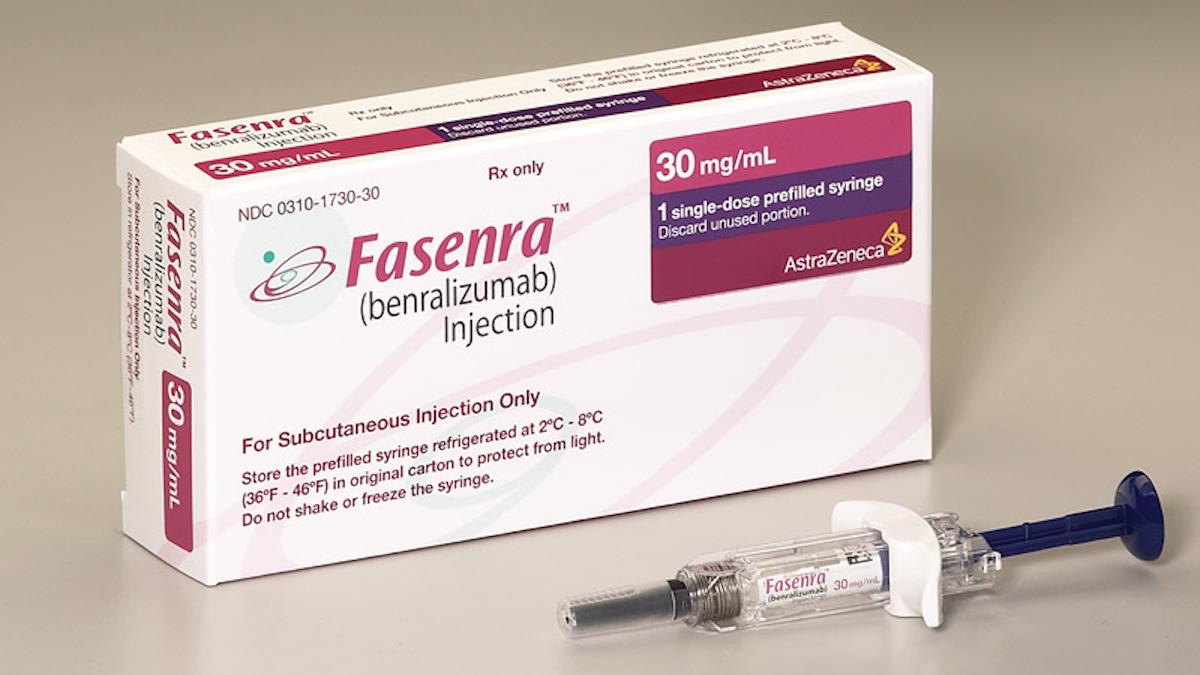Study finds AZ's benralizumab a 'game-changer' in asthma

Researchers in the UK say that AstraZeneca's benralizumab can have a dramatic impact if used to treat acute asthma attacks, calling it the first major advance for this aspect of the disease in 50 years.
The IL-5 inhibitor is already available under the Fasenra brand name for maintenance use in severe eosinophilic asthma, but a new study conducted by researchers at King's College London (KCL) suggests it could be a "game changer" if used routinely to treat acute attacks as they occur.
Nearly four million patients with asthma or chronic obstructive pulmonary disease (COPD) die each year, mostly from severe acute exacerbations that are currently treated with corticosteroids like prednisolone.
Around 50% of asthma attacks and 30% of COPD attacks are "eosinophilic exacerbations" – which means they should respond to IL-5 inhibitors like Fasenra that specifically target this type of inflammation.
In the investigator-led phase 2 ABRA trial, published in The Lancet Respiratory Medicine – researchers led by KCL's Professor Mona Bafadhel enrolled 158 patients presenting with acute asthma or COPD exacerbations associated with high levels of eosinophils in the blood.
They compared a higher dose of benralizumab than is currently approved in Fasenra (a 100mg subcutaneous injection plus the current standard therapy of 30mg prednisolone orally over five days) to the same prednisolone and benralizumab dosing regimens given with placebo.
The group taking prednisolone alone had a 74% treatment failure rate at 30 days, reducing to 45% in a pooled group of patients who received benralizumab, either with placebo or in combination with the steroid. Treatment failure was defined as a composite of death, admission to hospital, and any need for re-treatment requiring systemic glucocorticoids or antibiotics.
The time to first treatment failure event within 90 days was also significantly longer in the benralizumab group, according to the paper. After 28 days, respiratory symptoms like cough, wheezing, and breathlessness were found to be less common in the group that received the antibody, and patients also reported improved quality-of-life scores with the drug.
Bafadhel said the findings are potentially revolutionary, considering there are around two million asthma and COPD attacks in the UK alone each year.
"Benralizumab is a safe and effective drug already used to manage severe asthma," she said. "We've used the drug in a different way – at the point of an exacerbation – to show that it's more effective than steroid tablets, which is the only treatment currently available."
AZ provided benralizumab and funding for the ABRA study, but was not directly involved in the research. The researchers now hope to start a larger, phase 3 trial next year to try to generate further evidence of benralizumab's benefit in treating acute exacerbations.
Last year, KCL researchers also published the results of another trial called SHAMAL that showed benralizumab could allow people with asthma to reduce or even stop their use of inhaled steroids.












